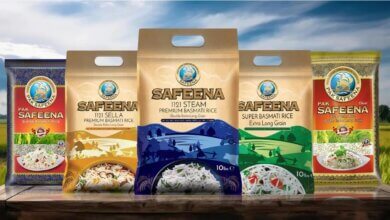
Farming in the UAE is no small feat. The country’s arid climate, limited freshwater resources, and naturally sandy soils present serious obstacles for both small-scale growers and commercial farmers. To meet food security goals and support sustainable agriculture, there is a growing shift toward soil enhancement techniques that can improve productivity without harming the environment.
One of the most promising and natural ways to boost soil fertility in such challenging conditions is through the use of humic acid. Often derived from organic materials like compost or peat, humic acid improves the health and performance of soil in multiple ways. Farmers are increasingly pairing humic acid with organic fertilizer uae to maximize the effectiveness of sustainable farming strategies.
In this blog, we explore how humic acid works, its many benefits for UAE soil, and how it fits into the broader picture of eco-friendly agriculture.
What Is Humic Acid?
Understanding Its Origin
Humic acid is a natural compound found in soil, peat, coal, and many composted organic materials. It’s part of a larger group of substances known as humic substances, which also include fulvic acid and humin. These organic molecules are the result of the microbial decomposition of plant and animal matter.
In essence, humic acid is nature’s own fertilizer enhancer, forming complex organic structures that bind to soil particles, nutrients, and water, creating a better environment for plant roots.
Physical and Chemical Properties
- Dark brown to black in color
- Highly water-soluble under alkaline conditions
- Contains multiple functional groups like carboxyl, phenol, and hydroxyl, which help in binding nutrients and improving cation exchange capacity (CEC)
This chemical versatility is one of the main reasons why humic acid is so beneficial for soil fertility.
Soil Composition in the UAE: Why It Needs Help
UAE soils are predominantly sandy and alkaline. These types of soil have:
- Low organic matter
- Poor water retention capacity
- High salt content
- Low microbial activity
These conditions hinder plant growth and reduce crop yield, especially in high-temperature environments. This is where humic acid steps in.
How Humic Acid Improves Soil Fertility
Enhances Nutrient Availability
One of humic acid’s primary benefits is its ability to chelate micronutrients like iron, zinc, and copper, making them more accessible to plants. Chelation prevents nutrients from becoming fixed in the soil and unavailable for uptake.
When used in combination with organic fertilizer uae, humic acid increases the efficiency of nutrient delivery by keeping these elements in a plant-available form longer.
Improves Soil Structure
Humic acid enhances soil aggregation, which is crucial for better air and water movement. Improved soil structure means:
- Better root development
- Enhanced microbial activity
- Reduced erosion
Boosts Water Retention
In sandy soils, water tends to drain quickly. Humic acid acts like a sponge, helping soil retain moisture longer. This is especially important in arid climates like the UAE, where water scarcity is a constant concern.
Encourages Microbial Growth
Soil microbes play a vital role in nutrient cycling, disease suppression, and organic matter decomposition. Humic acid provides these microbes with a favorable environment, promoting their proliferation and activity.
Benefits of Using Humic Acid on UAE Farms
Better Crop Yields
Studies and anecdotal evidence from farmers across the region show that regular application of humic acid, especially when used alongside humic acid uae labeled products, leads to better plant vigor and increased yields.
Reduced Need for Chemical Fertilizers
By enhancing the effectiveness of existing nutrients in the soil, humic acid reduces the need for synthetic fertilizers. This is not only cost-effective but also better for the environment.
Greater Resistance to Salinity
Salinity is a major issue in many UAE farmlands. Humic acid helps to buffer against high salt concentrations by improving soil CEC and promoting the leaching of sodium ions away from the root zone.
Enhanced Root Development
With better access to nutrients and water, roots grow deeper and more robust. A strong root system is the foundation of a healthy plant and essential for maximizing productivity in harsh environments.
Application Methods
Soil Drench
This involves mixing humic acid in water and applying it directly to the soil. It’s ideal for treating large open-field farms.
Fertigation
Involves delivering humic acid through irrigation systems. This method ensures even distribution and is highly efficient in water-limited regions like the UAE.
Foliar Spray
Though not as common, humic acid can also be sprayed directly onto plant leaves. This is usually done when plants show signs of stress or nutrient deficiency.
Granular Application
Granular forms of humic acid can be blended with organic fertilizer uae products. These are often used during planting or transplanting to promote early root establishment.
Best Practices for UAE Farmers
Test Your Soil First
Before incorporating humic acid, it’s essential to understand your soil’s current nutrient levels, pH, and salinity. A soil test helps determine the right dosage and combination with fertilizers.
Combine with Compost or Organic Fertilizer
Humic acid works synergistically with compost and organic fertilizers. When applied together, they improve the overall nutrient profile and biological activity of the soil.
Avoid Overuse
Though humic acid is natural and safe, overuse can cause nutrient imbalances or interfere with microbial communities. Always follow recommended application rates.
Seasonal Application
In the UAE, the most effective time to apply humic acid is during the cooler months, typically from October to March. This allows crops to establish strong roots before the intense summer heat.
Environmental Impact and Sustainability
Reducing Groundwater Contamination
Unlike synthetic fertilizers, humic acid doesn’t leach harmful chemicals into the groundwater. Its use can significantly reduce nitrate runoff, which is a common cause of water pollution.
Promoting Carbon Sequestration
By enhancing organic matter in the soil, humic acid contributes to carbon sequestration—helping to mitigate the effects of climate change.
Supporting Biodiversity
Healthy soils supported by humic acid encourage a diverse range of microorganisms, insects, and other beneficial soil organisms, all of which contribute to a resilient farming ecosystem.
Real-World Examples from UAE Farms
Several agricultural projects across Abu Dhabi, Al Ain, and the northern emirates have incorporated humic acid uae into their farming systems. The results have been consistently positive, with reports of:
- Improved vegetable quality
- Faster fruit ripening
- Increased resistance to pests and disease
- Better drought tolerance in crops like date palms, tomatoes, and cucumbers
While official studies are ongoing, farmer testimonials strongly support the inclusion of humic acid in regular soil management practices.
Challenges and Considerations
While the benefits are substantial, there are a few things to keep in mind:
- Not all humic acid products are created equal; some may have lower concentrations or be derived from poor-quality sources.
- Compatibility with other soil amendments or fertilizers should be checked before mixing.
- Long-term use should be part of a broader soil health strategy that includes crop rotation, cover cropping, and regular soil testing.
Wrapping Up
The path to sustainable and productive agriculture in the UAE requires innovative yet natural solutions. Humic acid stands out as a powerful ally in transforming the region’s challenging soils into fertile, productive farmland. When used in conjunction with organic fertilizer uae, humic acid enhances nutrient uptake, improves water retention, and boosts soil microbial life—all critical factors for long-term agricultural success in arid environments.
By understanding its benefits and incorporating it strategically, UAE farmers can take meaningful steps toward food security and environmental sustainability. The key lies in proper application, soil testing, and a commitment to nurturing the land through natural means.
Final Thoughts
Humic acid offers more than just a short-term boost—it represents a holistic approach to soil health. As UAE farmers look to reduce dependence on chemical inputs and build resilient agricultural systems, humic acid, especially when paired with humic acid uae products, plays an increasingly central role. With continued education, access, and proper usage, this natural compound could be the cornerstone of a greener, more productive agricultural future across the Emirates.



